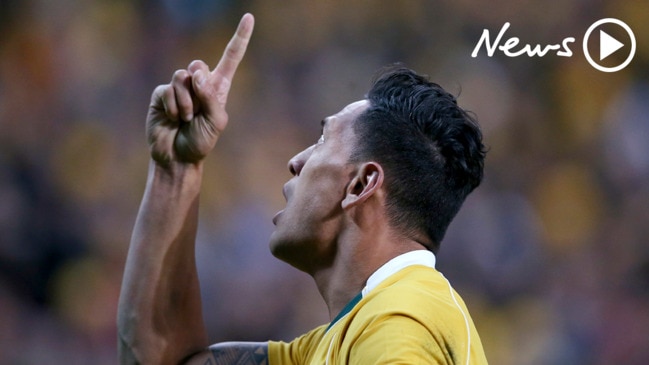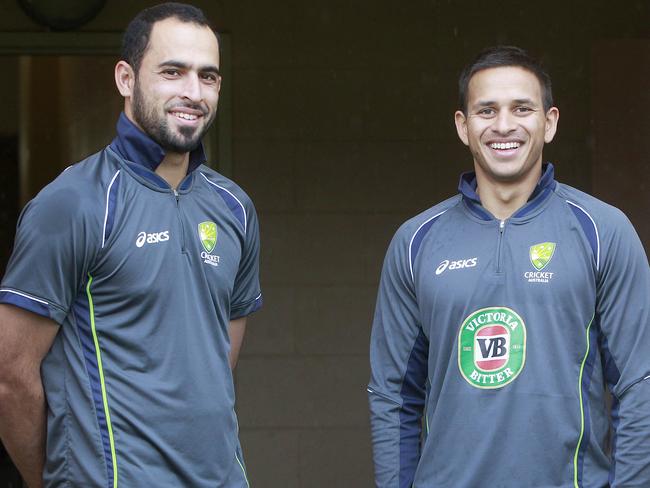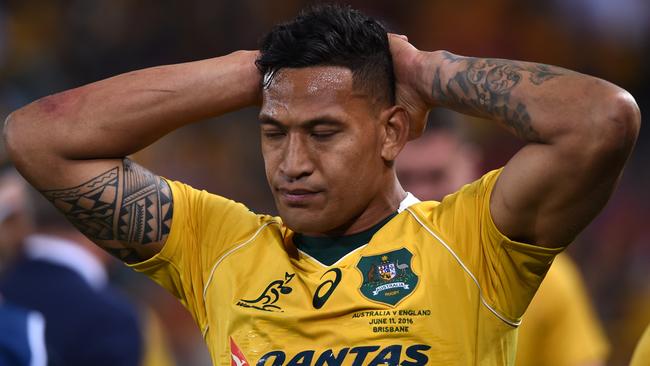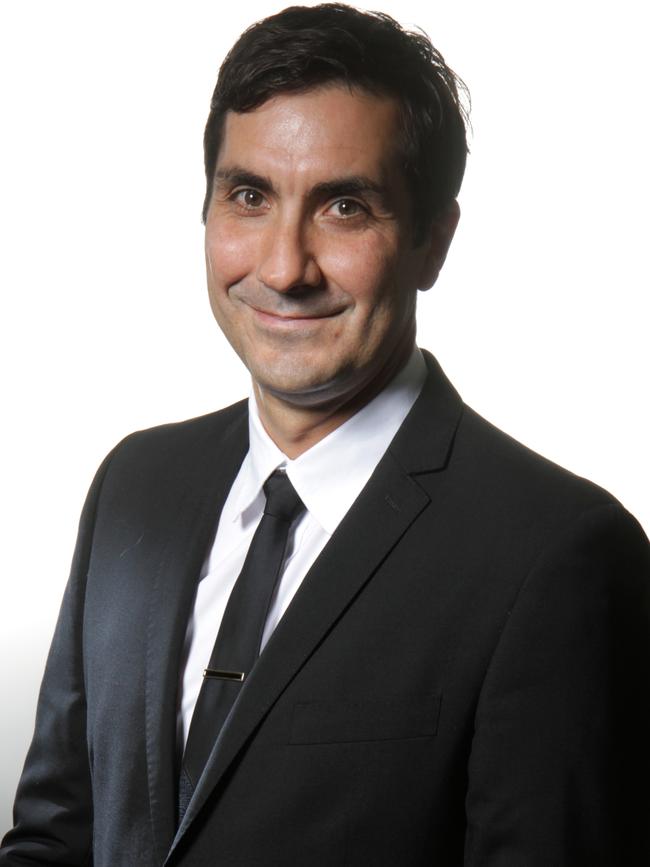Cricketers earned respect for being Muslim, why is Folau treated like a pariah for being Christian?
Israel Folau may have offended rugby’s backers, but that’s nothing compared to pro-athletes who refuse to wear sponsors’ logos on religious grounds, writes FRED PAWLE.

Opinion
Don't miss out on the headlines from Opinion. Followed categories will be added to My News.
- Fawad Ahmed ’unfazed’ by shirt sponsor furore
- Walters: If you don’t like the VB uniform, don’t play for Australia
The inconsistent way we treat social issues in Australia is dangerously divisive, and some business leaders are only making things worse.
Israel Folau’s expression of religious beliefs, for which he has been sacked by Rugby Australia and pre-emptively excluded by the NRL should he wish to switch codes, is not unprecedented in Australian sport.
Two other senior sportsmen have, in recent times, also expressed devout beliefs — and although they were arguably more detrimental than Folau’s, the outcome on those two occasions was the opposite.

Cricketers Fawad Ahmed and Usman Khawaja have both at times declined to wear the logos of alcohol sponsors because to do so was in conflict with their Muslim faith.
They have also requested, and received, help to manage their sporting commitments with religious prayer times and Ramadan.
MORE NEWS:
NRL failed to give de Belin ‘anti-violence against women training’, hearing told
TV host not guilty over parcel bomb sent to Penthouse Pet
Luxury home of bikie boss raided after shooting
The media has mostly applauded this as a sign of multicultural harmony.
“Khawaja’s faith is an integral part of his identity,” gushed Cate McGregor in The Australian in 2015, when he was refusing to wear a XXXX logo on his Queensland Bulls shirt. “Khawaja’s comfort in his own skin is palpable. He exudes a quiet assurance that belies his relative youth.”
When Ahmed declined to wear the Australian team’s VB logo during a tour of England in 2013, Cricket Australia was “respectful of Ahmed’s beliefs”, reported news.com.au.
Ahmed himself was grateful for Australia’s tolerance.
“I never felt any problems with my religion (in Australia). That is such a good thing about this country,” he said.
Folau might beg to differ.

He came to grief for his statement about Christ’s love of sinners, upsetting sponsors.
Ahmed and Khawaja, on the other hand, were disapproving of a sponsor’s product. The commercial implications of that alone are enormous.
The contrast between these incidents illustrates an inconsistency that is causing unnecessary rifts in Australian society.
Ahmed and Khawaja were given considerable respect for being Muslim; Folau is being treated like a pariah for being Christian.
The size of this rift is difficult to know.
When Alan Jones wrote in defence of Folau in The Australian on Monday, the online version attracted more than 1000 comments, almost all of which were supportive. On social media, the response has been more divided.
Nevertheless, businesses that choose not to voluntarily enter debates are occasionally cajoled to do so by groups claiming to represent market power.

Pizza Hut was this month persuaded to pull its advertisements from Sky News Australia by a shadowy group called Sleeping Giants, who objected to the station’s centre-right hosts.
But as the Australian Taxpayers Alliance points out: “Over 43 per cent of Sleeping Giants’ tweets sent to bully sponsors of Sky News in the early months of this year came from a single taxpayer-funded academic in Adelaide with far too much time on his hands. When the group attempted a rally outside News Corp offices, only a handful of protesters and extreme-left politicians looking for a soapbox, turned up!”
Falling for such a misleading campaign is one thing, but abandoning one of the founding principles of commerce is another.
As Adam Smith said more than 200 years ago: “Consumption is the sole end and purpose of all production; and the interest of the producer ought to be attended to, only so far as it may be necessary for promoting that of the consumer.”
Adhering to this principle is more complex now than in Smith’s time, given the mob mentality of social media and the volatile nature of modern discussions.
In a research paper last year called Curbing Corporate Social Responsibility, Centre for Independent Studies senior fellow Jeremy Sammut proposed a perfectly reasonable new guide for business leaders who can’t resist mixing business with politics. He called it the Community Pluralism Principle.
“It is important for modern corporations to consider their impact on all genuine stakeholders in the best interests of shareholders,” Sammut wrote.
“It is also important that engagement on social issues cannot be perceived to distract from a company’s core business mission, duties, and accountabilities, nor negatively affect its brand and reputation in the market of opinion in a political sense.
“It is a matter for boards of directors and other corporate decision-makers to manage these risks by ensuring that companies respect and reflect the pluralism of Australian society and remain open to the views and values of all employees, customers, shareholders and stakeholders across the community.”
Or, in other words, don’t be a bully. Let Folau play rugby, for God’s sake.
Fred Pawle is communications director of the Menzies Research Centre

